FAA 2010 Interview: Translating the Tradition
$4.99
In this interview by Brian Clark, Dr. Dykes explains a bit about his background, what is important about traditional astrology, and its future. Length 38:10, 17MB. $4.99
You may also like…
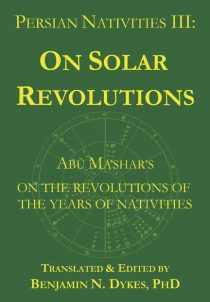
Persian Nativities III: On Solar Revolutions
This third volume of the Persian Nativities series is a translation of the surviving Latin version of Abu Ma’shar’s On the Revolutions of the Years of Nativities. It covers all of the primary predictive techniques: profections, solar revolutions, distributions, transits, and firdaria.
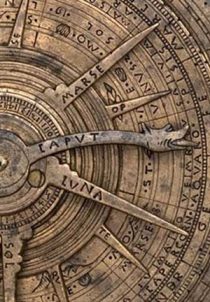
Workshop: Elements of Solar Revolutions
This 2.5-hour workshop shows in great detail how to understand and combine several traditional techniques for analyzing a native's chart from year to year, using solar revolutions (solar returns), profections, and the direction of the Ascendant of the solar revolution. Length 2:34:55, 71MB.
Related Products
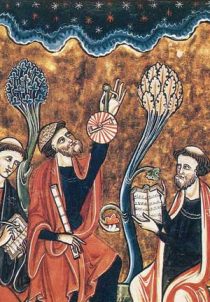
Thought-interpretation, or The Search of the Heart
This lecture describes “thought interpretation” or the practice of finding what is in a client’s “heart,” in traditional astrology. (Length: 1:00:00, 28MB.)
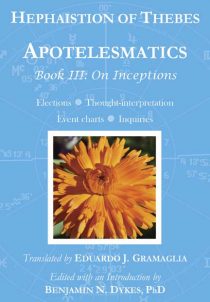
Apotelesmatics Book III: On Inceptions
Hephaistion of Thebes’ Apotelesmatics (5th Century AD) is an important record of ancient doctrines on general principles, natal, and electional astrology, largely drawn from the work of Ptolemy and Dorotheus.
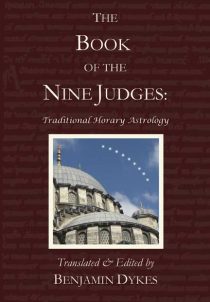
The Book of the Nine Judges
The great medieval compendium of Persian and Arabic masters
The Book of the Nine Judges is the largest traditional compilation of horary astrology, drawn from nine Persian and Arabic astrologers. Translated from Arabic sources chiefly by the 12th-Century Latin translator Hugo of Santalla, it achieved legendary status but has never before been translated into any modern language. It includes material by Masha’allah, ‘Umar al-Tabari, Abu Ma’shar, Sahl bin Bishr, al-Kindi, Abu ‘Ali al-Khayyat, “Dorotheus,” “Aristotle,” and Jirjis. Click here for a PDF excerpt.
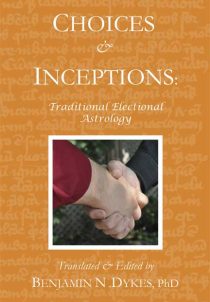
Choices & Inceptions: Traditional Electional Astrology
Medieval electional astrology in the tradition of Dorotheus
Choices & Inceptions presents numerous works on choosing auspicious times for actions, drawn from the most well-known medieval Persian and Arabic-language authors and compilers: al-Kindi, Sahl bin Bishr, Bethen, al-‘Imrani (Haly Embrany), and al-Rijal (Haly Abenragel). It is the largest collection of traditional electional texts available in modern languages.
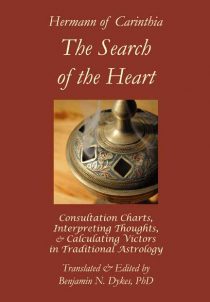
Hermann of Carinthia: The Search of the Heart
“Every question of astronomy… is either in thought or in speech.”
In the 1140s AD, Hermann of Carinthia assembled instructions from medieval Arabic-speaking authorities on interpreting the unstated thoughts of clients (now called “consultation charts”), often using a “victor” or mubtazz or almuten for topics or the chart. Hermann also offered his own reflections on the proper balancing of dignities, house rank, and planetary strength.
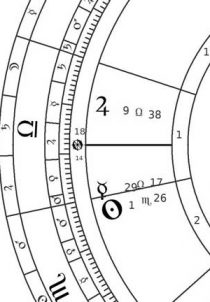
Workshop: Distributions Through the Bounds
This special, hands-on workshop will teach you how to use “distributions,” an ancient and powerful predictive technique, in both natal and solar return charts. Length 3:03:00, 84MB.
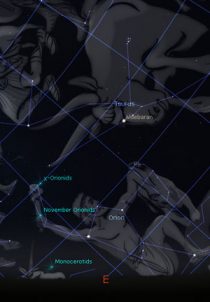
Ascensional Times: Theory and Practice
This lecture explains the meaning and uses of ascensional times (measuring how fast the signs rise), from their philosophical meaning to their use in elections, map-making and climes, distributions (a kind of primary direction), judging sect in a chart, personality types across the world, symbolic predictions with triplicity lords of the sect light, and calculating solar return Ascendants.The download includes PDF slides and a handout. Length 1:13:31, 48MB.
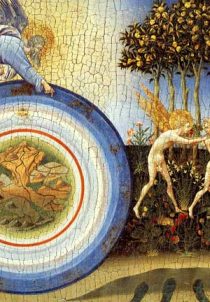
Life Purpose and Spirituality in Traditional Astrology
This lecture introduces three basic techniques for looking at a native’s sense of purpose and spirituality: personal happiness or prime motivation, religion or law, and the Victor of the chart (sometimes called the mubtazz or almuten) Length 1:11:55, 33MB.
